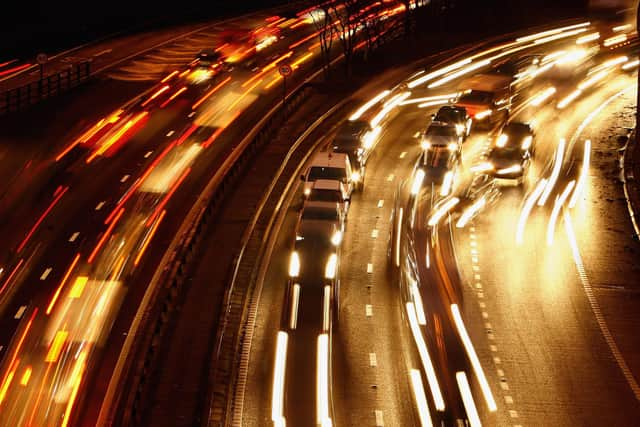COP26 zero emission vehicles deal stuck in first gear as US and China steer clear
The UK Government said the declaration, signed by 24 countries, was a “landmark” agreement that would accelerate the transition to 100 per cent zero emission cars and vans the world over.
The declaration, announced at the Glasgow climate summit, includes a commitment to “work towards all sales of new cars and vans being zero emission globally by 2040, and by no later than 2035 in leading markets”.
Advertisement
Hide AdAdvertisement
Hide AdIt also urges car manufacturers to work towards reaching “100 per cent zero emission new car and van sales in leading markets by 2035 or earlier”.
Speaking at a dedicated road transport event inside the summit’s blue zone on Wednesday, Trudy Harrison, a minister in the Department for Transport, said the “international collaboration” brings together countries which account for around a fifth of car sales around the world.
She said the declaration “crystallises the progress we have made in the past two years,” adding: “Today marks a tipping point in the transition to clean road transport, and we have really seen the momentum build in the past 18 months. Now it’s time to turn those good intentions into actions.”
However, the effectiveness of the agreement has been severely undermined by the absence of leading countries, including the US, China, Japan and Germany. Scotland is listed among the “regional government” signatories.


Given the first two nations represent the world’s biggest automobile markets, it represents a major blow for the UK’s hopes of reaching an international consensus, and the agreement has already been condemned as insufficient.
Greenpeace described the scale of ambition in the deal as “disappointingly weak”, pointing out that as well as major economies opting out from the deal, so too have vehicle manufacturers including VW, Toyota, BMW and Hyundai.
“To keep the goal of 1.5C alive, the final text agreed at Glasgow must commit to phasing out new oil, but we won’t get there if our economies stay stuck in the past, reliant on pumping cars and trucks full of fossil fuels,” Greenpeace warned.
It comes as the UK Government announced that it would become the first country in the world to commit to phasing out new, non-zero emission heavy goods vehicles (HGVs) weighing 26 tonnes or less by 2035, with all new HGVs sold to meet zero emission standards by 2040.
Advertisement
Hide AdAdvertisement
Hide AdIt said that coupled with its existing commitment to phase out petrol and diesel cars and vans by 2030, it represented a “world-leading pledge to end the sale of all polluting road vehicles”.
Grant Shapps, the UK transport secretary, said: “To support the transition to EVs, it’s integral that we have the infrastructure to support it. My vision is for the UK to have one of the best EV infrastructure networks in the world, with excellent British design at its heart.”
Meanwhile, the Scottish Government has signed five international agreements supporting the global decarbonisation of the transport sector.
Transport minister Graeme Dey said: “I’m proud that our world-leading commitment to reduce car kilometres travelled by 20 per cent by 2030 has been integrated into The Under2 Coalition Leaders Action Document.”
A message from the editor:
Thank you for reading this article. We're more reliant on your support than ever as the shift in consumer habits brought about by coronavirus impacts our advertisers. If you haven't already, please consider supporting our trusted, fact-checked journalism by taking out a digital subscription.
Comments
Want to join the conversation? Please or to comment on this article.
